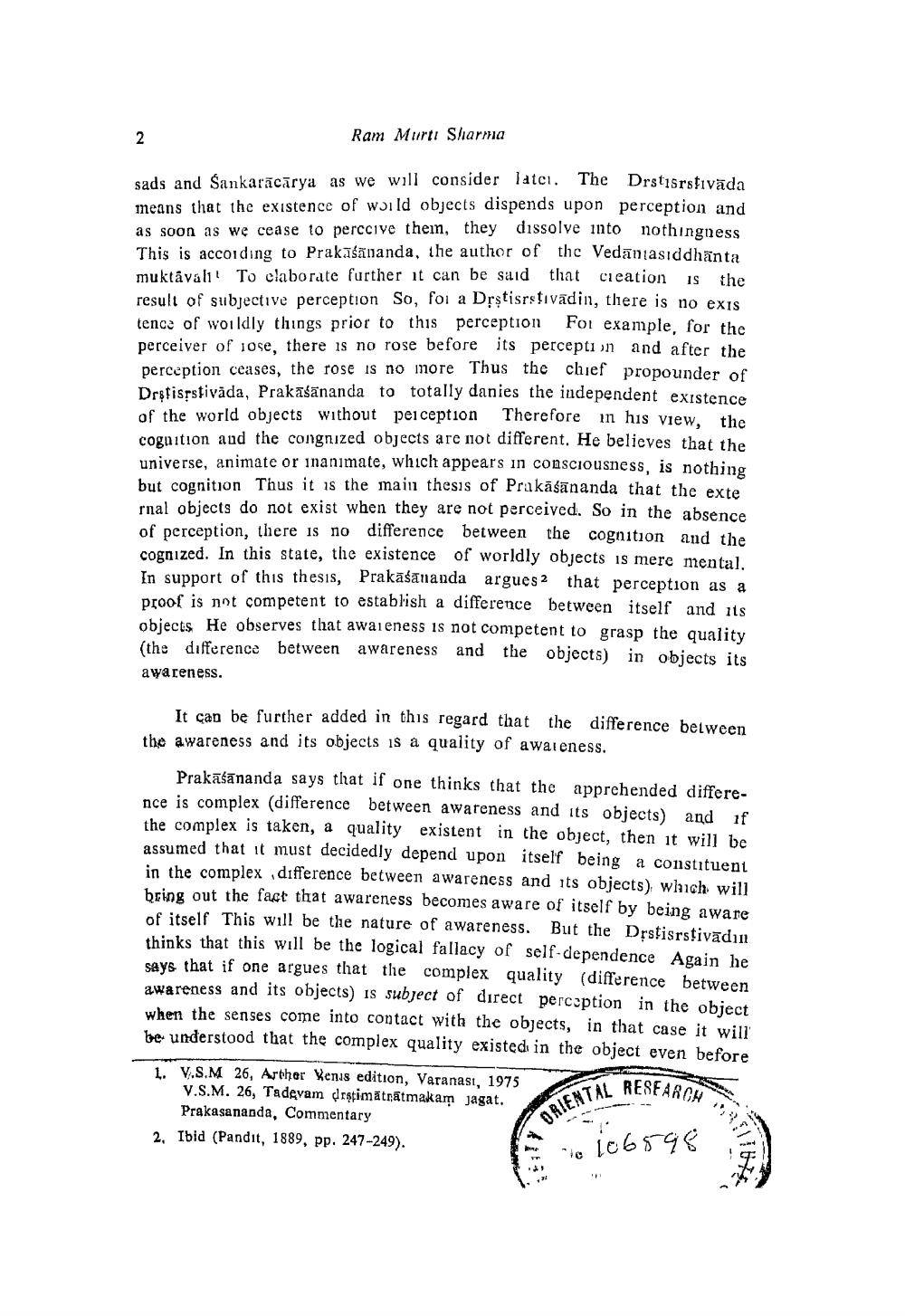Book Title: Sambodhi 1983 Vol 12 Author(s): Dalsukh Malvania, H C Bhayani, Nagin J Shah Publisher: L D Indology Ahmedabad View full book textPage 4
________________ Ram Murti Sharma sads and Sankarācārya as we will consider latcı, The Drstisrstivāda means that the existence of world objects dispends upon perception and as soon as we cease to perccive them, they dissolve into nothingness This is according to Prakasananda, the author of the Vedānasiddhanta muktavali! To elaborate further it can be said that creation is the result of subiective perception So, foi a Drstisrstivadin, there is no exis tence of wouldly things prior to this perception For example for the perceiver of 10se, there is no rose before its perception and after the perception ceases, the rose is no inore Thus the chief propounder of Drotisrstivāda, Prakaśānanda to totally danies the independent existence of the world objects without peiception Therefore in his view. the cognition and the congruized objects are not different. He believes that the universe, animate or inanimate, which appears in consciousness, is nothing but cognition Thus it is the main thesis of Prakāšananda that the exte rnal objects do not exist when they are not perceived. So in the absence of perception, there is no difference between the cognition and the cognized. In this state, the existence of worldly objects is mere mental. In support of this thesis, Prakāśānanda argues that perception as a proof is not competent to establish a difference between itself and its obiects. He observes that awaieness is not competent to grasp the quality (the difference between awareness and the objects) in objects its awareness. It can be further added in this regard that the difference between the awareness and its objects is a quality of awareness. Prakaśānanda says that if one thinks that the apprehended difference is complex (difference between awareness and its objects) and if the complex is taken, a quality existent in the object, then it will be assumed that it must decidedly depend upon itself being a constituent in the complex difference between awareness and its objects), which will bring out the fact that awareness becomes aware of itself by being aware of itself This will be the nature of awareness. But the Drstisrstivādın thinks that this will be the logical fallacy of self-dependence Again he says that if one argues that the complex quality (difference between awareness and its objects) is subject of direct perception in the object when the senses come into contact with the objects, in that case it will be understood that the complex quality existed in the object even before TAL RESEARA ASCH "" 1. V.S.M 26, Asther Wenis edition, Varanasi, 1975 V.S.M. 26, Tadevam drstim ātrātmakam jagat. Prakasananda, Commentary 2. Ibid (Pandit, 1889, pp. 247-249). ORIENTA 106598Page Navigation
1 2 3 4 5 6 7 8 9 10 11 12 13 14 15 16 17 18 19 20 21 22 23 24 25 26 27 28 29 30 31 32 33 34 35 36 37 38 39 40 41 42 ... 326
